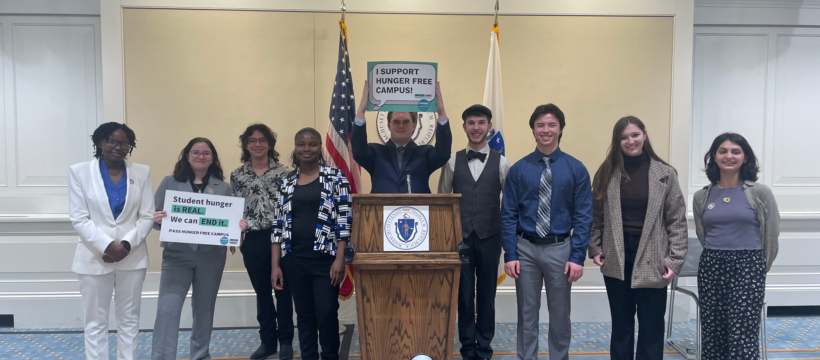A coalition of college students and administrators is asking state lawmakers to help fight food insecurity on campus.
The group is asking for $2 million for the Hunger Free Campus Initiative and to pass legislation to better fund programs already helping thousands of low-income students on 27 college campuses statewide.
Sean Simonini, vice chair of the Massachusetts Public Interest Research Group Students, said it is hard to focus when you are hungry.
“Students might just need a little bit of stopgap help for the week,” Simonini explained. “They might be running short on cash, might just have a tough spot in their life, where they just need to get through that week or that month.”
Simonini pointed out nearly 40% of college students in the Commonwealth dealt with food insecurity in 2019 and the number has likely increased since the pandemic.
Enrollment in Massachusetts community colleges rose 8% last year after lawmakers approved the MassReconnect program, offering free education for adult learners without degrees.
Simonini noted along with tuition equity and financial aid programs like MassGrantPlus will have a greater effect if students’ can first cover their basic needs.
“We invest in our public institutions of higher education because we want them to be able to not only go to school here in Massachusetts, but to stay in Massachusetts, to make a living in Massachusetts, and to contribute to the future of this Commonwealth,” Simonini emphasized.
Simonini argued investment to reduce food insecurity are investments in nurses, educators and other workers the state is currently lacking. He argued the money could be used to better inform students of the eligibility requirements for SNAP and WIC benefits, improve food pantries on campuses and create “meal-swipe” donation systems for those in need.










